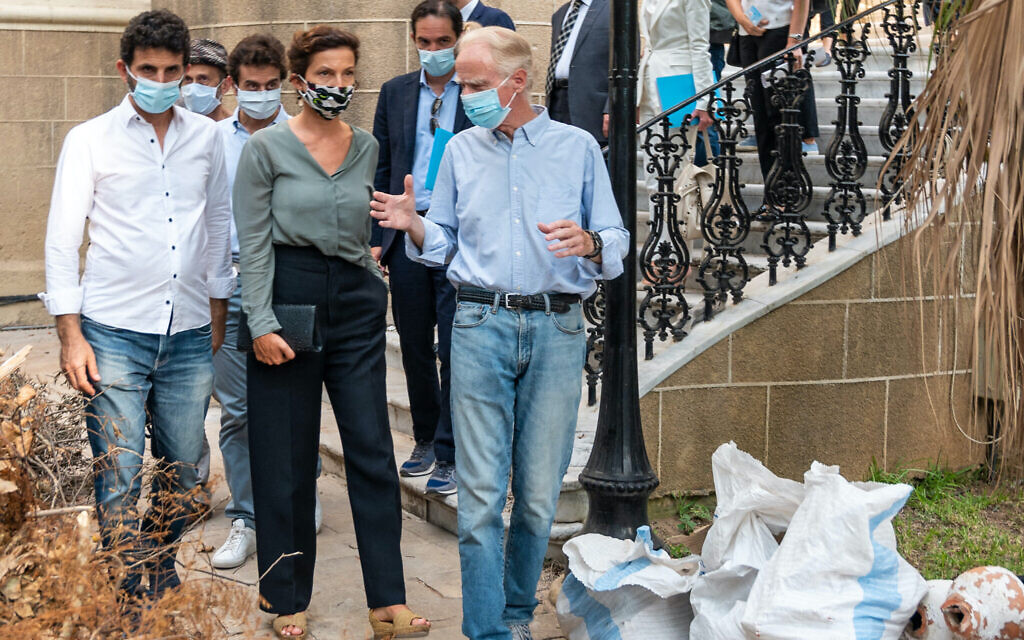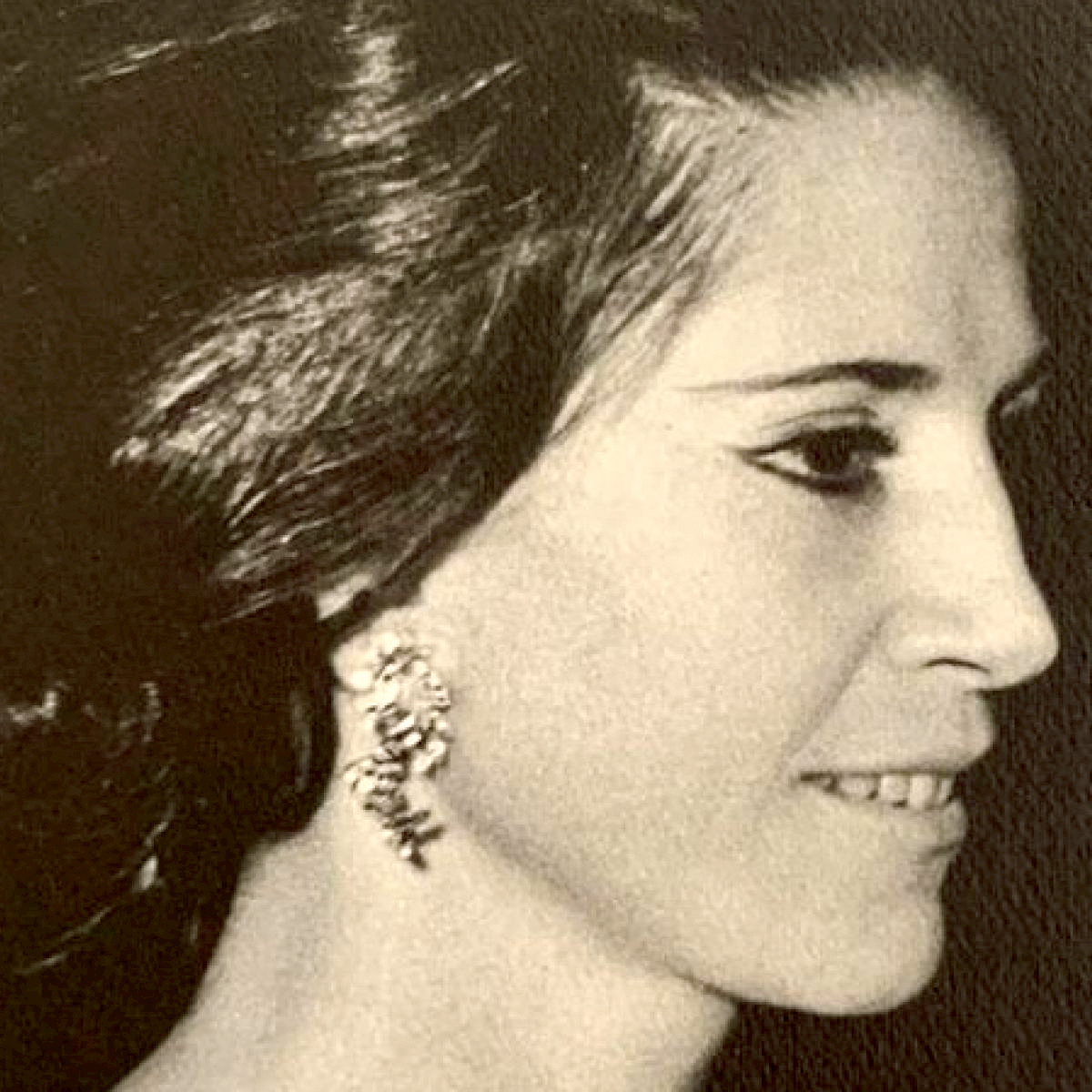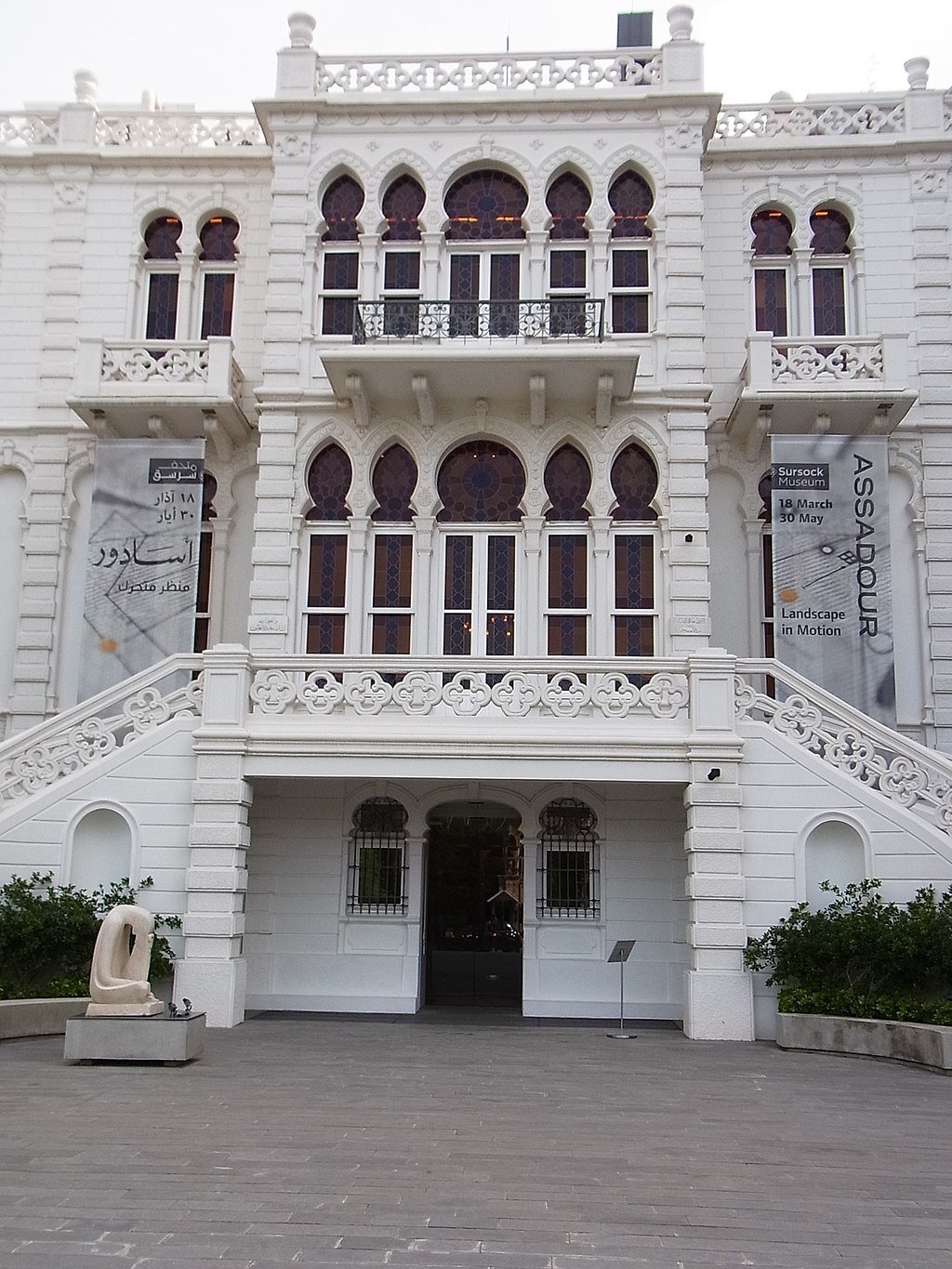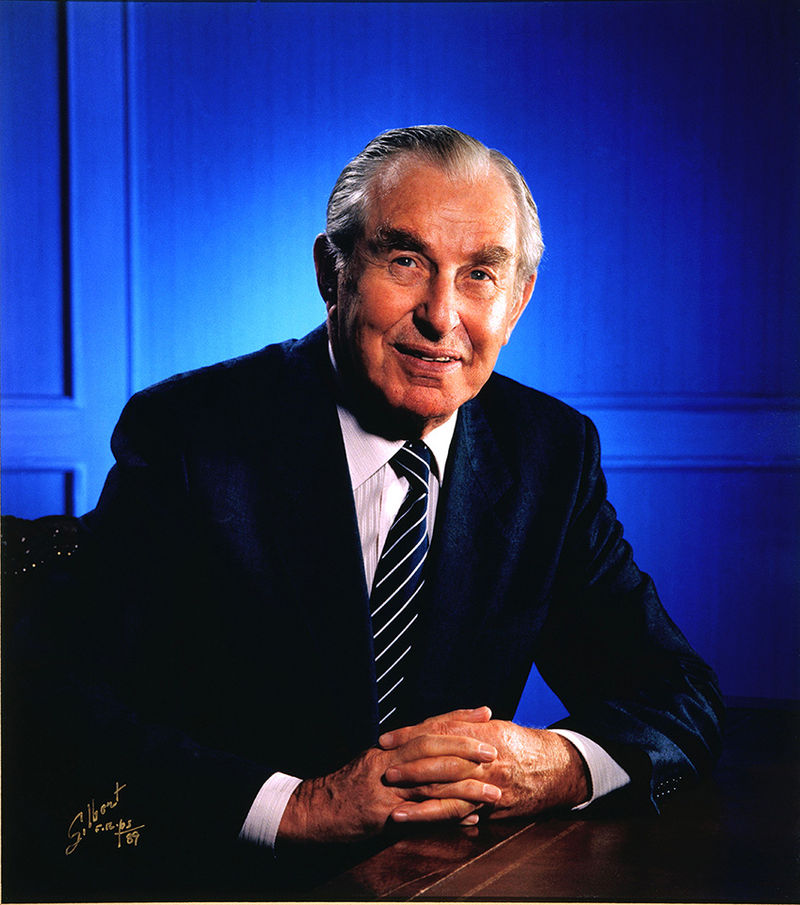The Beirut blast victim, 98, who was a long-standing supporter of Zionism
Extraordinary life of Lady Cochrane has been painstakingly unravelled, including her support for the early Jewish state and difficulties of selling property as a Lebanese citizen

A 98-year-old woman, who died as a result of injuries sustained in last month’s Beirut port explosion, was a unique figure in the Middle East — with links to Israel’s former president, Chaim Herzog, Britain’s Jewish community, and the early Zionist movement.
The extraordinary life of Lady Cochrane, born Yvonne Sursock, has been painstakingly unravelled by journalist Tal Schneider for Globes, the Israeli financial news site.
Known as the grande dame of Lebanese high society, Lady Cochrane, the widow of Sir Desmond Cochrane, Ireland’s one-time consul-general in Beirut, lived in the glamorous Sursock Palace in Beirut’s Christian quarter.
Get The Jewish News Daily Edition by email and never miss our top stories Free Sign Up
The palace, home to the aristocratic Sursock family for decades, was badly damaged in the port explosion, which killed 190 people and injured thousands more.
Ten years previously, after 20 years of renovation, the palace was opened to the public after serious damage during the Lebanese civil war.
But long before, Lady Cochrane’s family, the Sursock clan, played a pivotal part in the history of the Middle East. Yvonne Sursock was born in Naples, Italy, in 1922.

Her father, Alfred Bey Sursock, owned thousands of tracts of land in what became the state of Israel, including much of the Jezreel Valley, the Western Galilee, Haifa and Jaffa. He began buying the land in 1870 from the Turkish government.
By 1891, says Tal Schneider, “Zionist activists entered into negotiations with the Sursock family for land purchases. Bit by bit, plot by plot, properties were purchased by Zionist movement leaders Yehoshua Hankin, Laurence Oliphant, Arthur Ruppin, the Jewish National Fund, and the World Zionist Organization (WZO)”.
The Sursock family, probably uniquely among their peers, were sympathetic to the early Zionists and helped them with their land purchases.

But although the Sursocks sold huge amounts of land, they still retained many properties and plots in the new Jewish state. And in 1950, two years after the declaration of the state, Lady Cochrane embarked on a long legal battle to release her assets in Israel.
But she was repeatedly turned down under the Absentees’ Property Law of 1950, and Israel’s Development Authority took control of the Sursock holdings.
Working with her London lawyers, Lady Cochrane appealed to the British Jewish community, citing her family’s long support for the early Zionist movement.
Unfortunately for Lady Cochrane, the new state of Israel was not willing to set a precedent for compensation to a Lebanese citizen.
So in the late 1960s she turned for help to lawyer Chaim Herzog, whose approach was to focus on her citizenship of Ireland and Italy, as well as that of Lebanon. Herzog, through his law firm, Herzog, Fox and Ne’eman, also enlisted the help of his brother-in-law, Israeli Foreign Minister Abba Eban.

He reminded Eban that Lady Cochrane had the support of leading British Jewish figures, such as Sir Isaac Wolfson and Marks & Spencer chief Marcus Sieff. Eban was doubtful of success: he told Herzog that “to the best of my knowledge, there are no precedents for releasing absentee assets to ‘enemy subjects’ and also residents of an Arab state”.
Eventually Herzog decided to appeal to the Israeli High Court of Justice. Lady Cochrane brought out the big guns: she persuaded the former president of Lebanon, Camille Chamoun, to support her bid. And Chaim Herzog went to court in 1980 and successfully argued that because of her multiple nationalities — and the fact that her husband was an Irish diplomat — that her stay in Lebanon was “out of diplomatic necessity”. The court ruled in Lady Cochrane’s favour and a financial compensation agreement was signed.
It wasn’t a massive payout, but Yvonne Sursock had been determined to gain recognition of her family’s long-standing support for the early Zionist enterprise.
In a piquant pay-off, one of Lady Cochrane’s four children, Sir Roderick Cochrane, has now agreed with Chaim Herzog’s old law firm that all the historic papers connected with the case should be be transferred to the Chaim Herzog Foundation archive.
Chaim Herzog’s son, Isaac, now head of the Jewish Agency, told Globes: “My father was very concerned about this case because of the Zionist aspects. He had a well-developed sense of justice and felt this was the way to thank the Sursock family for agreeing to sell land to the ‘land redeemers’. He talked about this case for years; the case also connected him to Ireland [Chaim Herzog was born in Belfast and his father, Rabbi Isaac Herzog was the Chief Rabbi of Ireland before becoming Ashkenazi Chief Rabbi of Israel]”.

Thank you for helping to make Jewish News the leading source of news and opinion for the UK Jewish community. Today we're asking for your invaluable help to continue putting our community first in everything we do.
For as little as £5 a month you can help sustain the vital work we do in celebrating and standing up for Jewish life in Britain.
Jewish News holds our community together and keeps us connected. Like a synagogue, it’s where people turn to feel part of something bigger. It also proudly shows the rest of Britain the vibrancy and rich culture of modern Jewish life.
You can make a quick and easy one-off or monthly contribution of £5, £10, £20 or any other sum you’re comfortable with.
100% of your donation will help us continue celebrating our community, in all its dynamic diversity...
Engaging
Being a community platform means so much more than producing a newspaper and website. One of our proudest roles is media partnering with our invaluable charities to amplify the outstanding work they do to help us all.
Celebrating
There’s no shortage of oys in the world but Jewish News takes every opportunity to celebrate the joys too, through projects like Night of Heroes, 40 Under 40 and other compelling countdowns that make the community kvell with pride.
Pioneering
In the first collaboration between media outlets from different faiths, Jewish News worked with British Muslim TV and Church Times to produce a list of young activists leading the way on interfaith understanding.
Campaigning
Royal Mail issued a stamp honouring Holocaust hero Sir Nicholas Winton after a Jewish News campaign attracted more than 100,000 backers. Jewish Newsalso produces special editions of the paper highlighting pressing issues including mental health and Holocaust remembrance.
Easy access
In an age when news is readily accessible, Jewish News provides high-quality content free online and offline, removing any financial barriers to connecting people.
Voice of our community to wider society
The Jewish News team regularly appears on TV, radio and on the pages of the national press to comment on stories about the Jewish community. Easy access to the paper on the streets of London also means Jewish News provides an invaluable window into the community for the country at large.
We hope you agree all this is worth preserving.
-
By Brigit Grant
-
By Laurent Vaughan - Senior Associate (Bishop & Sewell Solicitors)
-
By Laurent Vaughan - Senior Associate (Bishop & Sewell Solicitors)
-
By Laurent Vaughan - Senior Associate (Bishop & Sewell Solicitors)
-
By Laurent Vaughan - Senior Associate (Bishop & Sewell Solicitors)





















